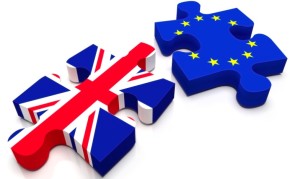 I was in Athens, this time last year, and witnessed ‘Grexit,’ the Greek’s agonizing vote to leave the European Union. They voted to stay in the EU.
I was in Athens, this time last year, and witnessed ‘Grexit,’ the Greek’s agonizing vote to leave the European Union. They voted to stay in the EU.
And, last week, I was in London, in the midst of Brexit, UK’s similar battle. They voted to leave the EU.
Different outcomes but largely driven by the same basic issue … protecting sovereignty i.e. not having others dictate their future and culture. The Greek’s poor economy trumped their ability to rid themselves of EU rule but the Brits are financially able to stand-alone. They can regain independence from EU leadership and more pointedly control the open in-flow of unskilled migrants. They lower the wages, soak up the social benefits, fuel the fear of terrorism, and in time, change the culture.
These are emotionally charged decisions and run deep and wide across the populations. It would be somewhat akin to a California or Texas deciding to become independent of the US. It strikes at the heart of the livelihoods and security of each individual. Over the next year we’ll watch the same story play out for many other European countries who will also be assessing their sovereignty and independence in light of a possible ‘exit’ from the EU.
So what is really happening here and, importantly as ‘master branders’ what should we take from all this?
Well actually it is fairly simple.
As generations march forward things change and some times that change is quite pivotal. In each case, Grexit and Brexit, the older generations voted overwhelming for ‘exit’. They wanted to keep their cultures and traditions and resented deeply the changes they saw around them with foreign migrants taking over their neighborhoods, jobs and social benefits, terrorism etc.
The younger generations (under 35) certainly understand the loss of tradition but they are in a completely different place. They voted to stay. They are underemployed. They want jobs and see the opportunity to freely travel throughout the larger European market as an enormous benefit. This is certainly the case with Greece with very high unemployment for under 30’s but also in the UK where again the chance to easily work in other countries is tremendously beneficial.
The younger generations are also very different in some very important ways. They are more globally oriented and connected. They are less trusting of politicians, moderately ‘sovereignty-centric’ and generally much more sensitive to the overall global condition … environment, resources, hope for everyone. Yes, they do understand and respect tradition but “it’s really tough when you are still living at home”. “And it would be really great if they could find a better way to live on earth”.
This is not just European. Younger voters, the world-over is similar. In the US they jumped on the Sander’s ‘share the wealth’ and the Trump ‘anti-establishment’ platforms in droves in the current election season. These aren’t ‘stay the traditional course’ and rigid sovereignty sentiments.
All this I believe triggers quite a sea change.
We really need to take a pause and have a serious look at the next 5-10 years or so and see what this all means to these new generations of consumers, leaders and influencers. Brands that do not do this are at great peril of falling way off the radar of this new group. A mere whiff of personal irrelevance will be whisked away with a click, swipe or touch. Brands that get it will thrive big time. Brands that don’t will die quickly. And the sad thing is that they may not know it until it is too late.
We at Rocket Branding have a grand global view and understand how this relates to each individual across the age and need spectrums. Let us help you plot the future of your brand. www.rocketbranding.com. 312 316 5290.


